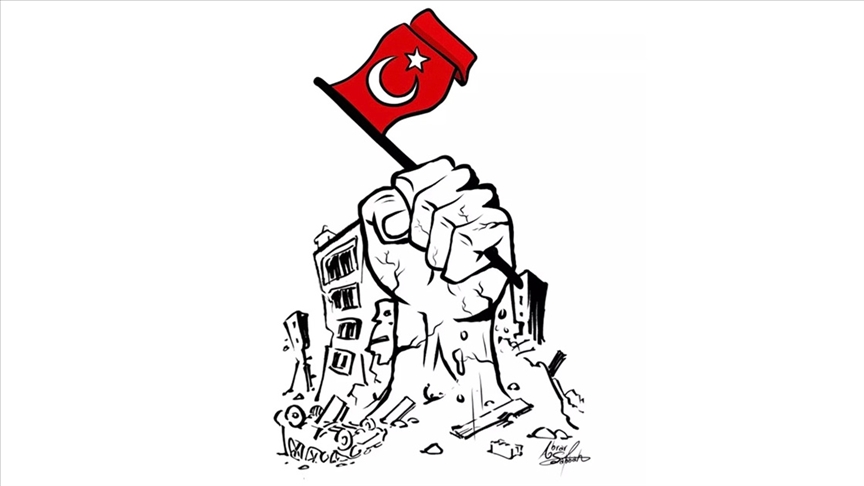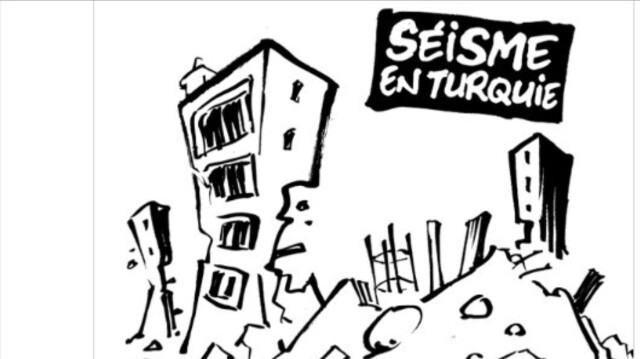After his birth Prophet Muhammad (pbuh) stayed with his mother Amina, and then, per tradition, he was handed over to his wet-nurse. The purpose of giving children to a wet nurse was so that they would be raised in the desert, which was a healthier place to grow up in comparison to the city and so that they would learn fluent Arabic. In accordance with this tradition, Prophet Muhammad was given to Halima bint Abu Zuayb, who was a member of the Sa'd bin bakr branch of the Havazin tribe. In a year of famine, Halima had gone to Mecca with her husband and other Bedouin women who earned their lives by nursing; however, she was unable to find a child from a rich family to nurse. But when she learned that Muhammad had lost his father she did not hesitate to take him, and she agreed to be his wet nurse so that she would not return home empty-handed. After two years, Prophet Muhammad was brought back to Mecca by his wet-nurse Halima, however Amina wanted her child to stay with Halima for a little longer, as she believed that the desert air was good for her child, and according to some accounts, there was a plague in Mecca. Prophet Muhammad stayed with his wet nurse until he was five or six and then he was brought to Mecca and handed over to his mother. The husband of Prophet Muhammad's wet nurse was Harith bin Abduluzza. The couple had sons called Abdullah, Unaysa and Shayma.
According to what has been reported, after receiving the care of Prophet Muhammad, Halima and Harith became wealthier; their camels and sheep began to provide much more milk than before. In addition to this, it is said in the sources that the shakk-i sadr incident occurred during time when Prophet Muhammad was staying with his nursing mother. This was an event in which two angels came down to earth, cut open Muhammad's chest, took out his heart and purified it from all evils, washing it with heavenly water and then putting it back in its place. It is recorded that when Halima and Harith learned about this incident they were very anxious as they were unable to explain some extraordinary characteristics of Muhammad that they had witnessed many times before; they now thought that it would be better for the child to be back with his family.
When Prophet Muhammad reached the age of six, his mother Amina started to take care of him with her helper Ummu Ayman and took him to Yathrib (Medina). While there, they visited the grave of Abdullah and the members of the Banu Najjar, who were relatives of Abdulmuttalib's mother. After staying in Yathrib for a month, Amina became ill and died, at a young age, on the way back to Mecca in Abva, located 190 km from Medina. It is said that before her death, Amina looked at her little child and said: "All living people die. Everything new gets old. Everything that is in abundance grows less. Everything large disappears and I will die too, but I will always be remembered, because I leave my son to the world as a fine future." After his mother's death, Muhammad was an orphan and was brought back to Mecca by Ummu Ayman and given to his grandfather Abdulmuttalib. Prophet Muhammad revisited Abva in the sixth year after the migration (628 AD) and visited his mother's grave. During this visit, he repaired the grave with his own hands and cried when remembering the affection and compassion of his mother. Affected by his grief, the Companions could not hold back their tears and cried with him.
Abdulmuttalib took great care of Muhammad, as he was a precious gift from his son Abdullah, who had died at an early age. He would sit at the table with Muhammad, and from time to time took him to the divan that was under the shadow of the wall of the Kaaba; he took his grandson to the meetings in Darunnadva over which he presided, and he tried to provide the child with a fatherly compassion and love in order so that he would not miss that which would have been given to him by his parents. When Abdulmuttalib was over eighty he handed the custody and protection of his grandson Muhammad to the boy's uncle, Abu Talib, and then the old man passed away. Abu Talib was the brother of Prophet Muhammad's father. Abu Talib loved his nephew more than his own children, believing that the child had brought fortune to the family and he made great efforts to raise him well. He would take Muhammad with him on his journeys. When Abu Talib decided to go to Syria for trade, Muhammad was about nine (or twelve) years old and he wanted to accompany his uncle. When his nephew insisted on this, Abu Talip agreed to take the boy with him. The caravan stopped in Busra, which is inside the borders of Syria. A monk called Bahira, who was living in a monastery, invited the caravan for a meal. Bahira told Abu Talib that Muhammad could be the prophet who had been described in the Bible and called attention to some of the dangers that he might encounter, advising Abu Talib to protect the boy well. Upon this, Abu Talib ended the journey and returned to Mecca.
It is known that when Prophet Muhammad was about ten years old he worked as a shepherd for a while in order to help his uncle Abu Talib, who had a large family. After becoming prophet he would refer to this time, saying, "There has never been a prophet who did not herd sheep". When the Companions around him asked, "Did you herd sheep Holy Prophet?" he replied, "Yes. I herded the sheep of Mecca".
Abu Talib's wife Fadima bint Asad took great care of Muhammad, caring for him more than her own children. After the Prophet grew up, he never forgot the good deeds of his aunt. He would visit her in her house in Medina and sometimes would sleep there in the afternoons. When his aunt passed away, the Prophet was very sad and made a shroud for her from his own shirt, personally leading her funeral prayer. When speaking of his sadness about her death, he showed his loyalty with the following words: "I was a child who was in need of her custody. She would feed me even if her children were hungry. She would leave her children and comb my hair. She was like my mother." Abu Talib stayed with his nephew after he became a prophet and although Prophet Muhammad's persistent requests that Abu Talib accept Islam were never answered, Abu Talib did his best to protect Prophet Muhammad, both as a child and later when he became prophet.
There were frequent wars between the Arab tribes in the Age of Ignorance. The Prophet had to join in such a war when he was an adolescent. The most reliable account states that the Prophet and uncles participated in the great battle that broke out between the Quraishi-Kinane and Qays-Aylan alliances, but that he did not actually fight in the war, rather protecting the belongings of his uncles, deflecting arrows with his shield and then collecting them to give to his uncles. It is thought that he was either fourteen, fifteen, seventeen or twenty years old at that time.
Prophet Muhammad participated in a meeting when he was twenty for an agreement known as the Hilf al-Fudul. The Hilf al-Fudul was drawn up to prevent injustices that were being practiced against the weak and weary people who came to Mecca for pilgrimage or trade, and to prevent the tribal wars that frequently broke out. The Hilf al-Fudul was drawn up under the auspices of Zubayr bin Abdulmuttalib, Prophet Muhammad's uncle, and under the leadership of Jud'an at-Taymi, the richest, oldest and most influential tribal leader in Mecca.
The term Hilf al-Fudul means "the alliance of the virtuous". The people who joined in this movement swore that they would protect everyone, be they natives or strangers, who encountered injustice and that they would act as one and help each other financially to ensure that these people got what they deserved. Prophet Muhammad talked about this alliance, praising it, and said: "I was present in Abdullah bin Judan's house when they concluded a pact so excellent that I would not change my part in it even for a herd of red camels; if I was asked now, in Islam, to take part in it, I would gladly agree." According to an account by Balazuri, in the Islamic period Abu Jahil refused to pay the price of something that he had purchased from a man who was a member of the Arash. A polytheist who knew the hostility of Abu Jahil towards the Prophet jokingly told the aggrieved trader that he could apply to the Prophet who was in the Kaaba and that the Prophet would give him his money back. Upon hearing these words, the trader went to the Kaaba, explained the situation to Prophet Muhammad and asked for his help. The Prophet went to Abu Jahil's house and took the money without any confrontation.
Prophet Muhammad made his living through trade, like many of the Quraishis in Mecca. Prophet Muhammad embarked on his career in trade by helping Abu Talib, who was involved in trade in cloth and grain. Prophet Muhammad continued this trade when his uncle became older. It is known that Prophet Muhammad traveled to various places for purposes of trade. It is known that Muhammad went to the Hubasha emporium when he was a teenager, to Yemen once or twice, to the Mushakkar and Daba emporiums in eastern Arabia, and even to Ethiopia. As a result of these journeys, Prophet Muhammad not only learned about the necessities of commercial life, but also became acquainted with the people living in certain regions of Arabia, and learned about their languages, dialects, religions, and political and social conditions. In all sources it is stated that Prophet Muhammad lived an honest life and remained removed from the wrong-doings in the Age of Ignorance. At the age of twenty-five, he was known as Muhammadu'l-amin or Al-Amin (the Trustworthy) because of his decency, bravery, compassion, fairness, and his honesty and reliability in trade. The Meccan trader Qays bin Saib stated that he had made many deals with Prophet Muhammad but that he had never come across a partner in trade who was better than he. He said: "When he set out on a journey, I would give him some transactions to carry out for me. After the journey he would not return to his house until he had told me about the transactions to satisfy me. In contrast, when I set out on a journey travel and he gave some transactions to carry out, upon my return he would ask only whether I was healthy and in good condition, unlike other people, who asked me questions about trade."
Subscribe to:
Post Comments (Atom)









This is very helpful for me in making me make my project.I was wondering how I am going to make my project.may Allah bless all of us...
ReplyDelete